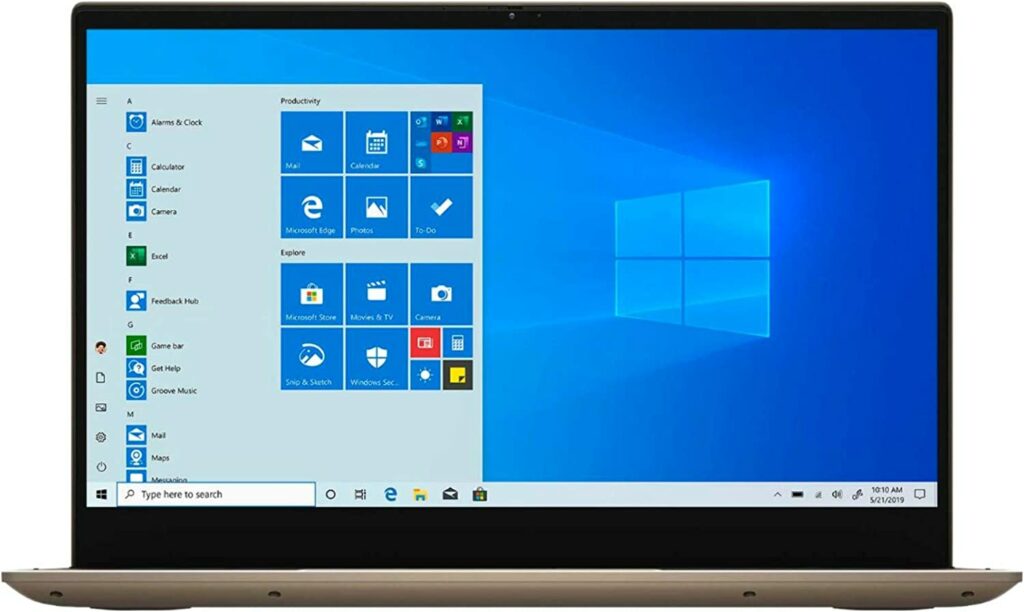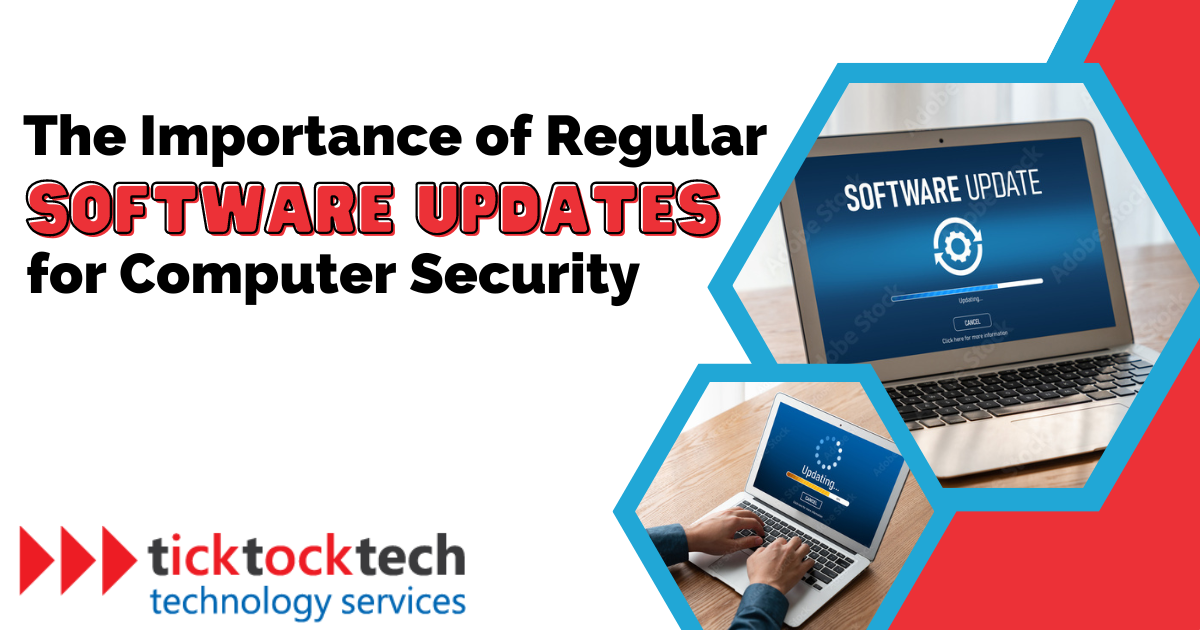Software is a crucial part of the computer system or any other tech gadget there is. Also, regular updates for software have great importance on computer security. Not only are they responsible for the integration of the hardware to give expected results, but also for the security of your files and document. The computer system comprises two types of software: the system software and the application software. What makes your computer work and function is the operating system software which, without, you only have metals and plastics.
Both the system software and the application software require updates for proper security. Hackers or viruses don’t target the hardware; they get in through software. For every software, either OS or applications, users are always notified if there is a new version. As you can guess, most users ignore messages like this, which could have an effect in the long run. In case you do ignore such messages, you shouldn’t anymore, and here be the importance of not ignoring software updates.
Related: What is an Operating system?
1. Malware and Virus Prevention
It’s crucial to keep up with the most recent security updates and patches since malware developers constantly modify their methods for finding software flaws. Software updates frequently come with enhanced malware detection and prevention tools that help protect your computer from harmful programs.
Related: 8 Common Types of Malware in 2023 and How to Prevent Them
Your antivirus or antimalware software can recognize and block the most recent malware types thanks to regular updates that provide you access to new threat intelligence. As a result, there is a lower chance of malware infestations and the negative effects they might have, such as data loss, illegal access, or system disruption. This helps safeguard your data, privacy, and system integrity. Software upgrades also frequently improve security software’s heuristics and behavioral analysis capabilities, enabling it to recognize previously unidentified or zero-day malware.
2. Safe Browsing
These improvements bolster the browser’s security and guard against unauthorized access to confidential data. Updates to your browser fix security holes that hackers could use to damage your machine or steal your personal information. You plug security flaws and lessen your risk of being a victim of cyberattacks by swiftly applying updates.
See Also: Safe Browsing on the Internet
Your browser’s compliance with the most recent web technologies and security protocols might also affect how safe your browsing is. A seamless and secure browsing experience is provided by software upgrades that guarantee your browser’s compatibility with changing web standards. Additionally, they improve cookie management, encryption methods, and data handling procedures, giving you more confidence to browse the internet.

3. Data Safety
These improvements deal with data processing procedures, encryption standards, and privacy controls to guarantee that user data is shielded from intrusions and breaches. The risk of data leaks, identity theft, and illegal use of personal data can be reduced by people and organizations remaining informed.
Related: Data Recovery Services in 2023
The General Data Protection Regulation (GDPR) can be complied with by updating software regularly to ensure that privacy protections and features are current. Software updates that protect user data privacy are crucial for preserving user confidence, protecting sensitive data, and honoring moral and legal obligations linked to data protection.
4. Patching Vulnerability
These flaws may enable harmful actions like data breaches or system compromise or permit unauthorized access to your machine. Your computer becomes vulnerable to possible assaults if vulnerabilities are not patched, which attracts cybercriminals as a target. By keeping your software up to date with the most recent security fixes, software updates serve as a crucial first line of defense against such assaults.
Security patches that expressly address these vulnerabilities are frequently included in software upgrades. Software companies create these updates in response to discovered security flaws and dangers. You may efficiently plug these security gaps and increase the overall security of your computer system by applying updates. Because cyber threats are continuously changing and new vulnerabilities are continually being found, patching vulnerabilities is essential. To use them for their malevolent purposes, hackers are always looking for weaknesses in well-known software.
5. Industry benefits
For enterprises to comply with rules and security standards governing their various industries, regular software updates are essential. Data protection and handling are ensured by compliance regulations. Organizations that keep up with new developments fix vulnerabilities, put in place required security controls, and follow the most recent security guidelines.

Different industries have different compliance requirements, such as GDPR for data privacy, PCI DSS for credit card processing, and HIPAA for healthcare. Failure to comply can result in fines, legal repercussions, and reputational harm. Maintaining the most recent security features, lowering the risk of data breaches, and upholding compliance are all made possible by giving software upgrades a priority. Importance of software updates. As a result, sensitive data is protected, client trust is preserved, and potential financial losses are minimized.
6. Bug Fixes and Corrections from previous versions
One of the main advantages of routinely upgrading software on a computer is reliability and bug fixes. Patches are frequently included with software upgrades to fix bugs, hiccups, and compatibility problems. These updates increase the software’s general stability by lowering crashes, freezing, and unforeseen problems.
See Also: iOS 17 Accessibility features
By keeping your software up to date, you can guarantee a more dependable user experience, increase productivity, and avoid irritation brought on by software-related problems. To give users a more seamless and effective software experience, software engineers continuously seek out and fix issues through updates. As software engineers improve and optimize their code over time, frequent updates also help to ensure the product is stable in the long run. You can enjoy a more stable and hassle-free computer experience by keeping up with software updates.
7. New and Improved Features
Software updates frequently include new features, improvements, and tools that improve the user experience. The user interface may be enhanced, current procedures may be simplified, and new capabilities may be added to help with work efficiency. You may take advantage of these improvements by staying up to date, optimizing how you use software, and gaining access to the newest technological developments.
Related: iOS16 Common Problems and Solutions
You can acquire new features through regular updates that might boost productivity, enable greater integration with other programs or services, or offer more customization possibilities. By streamlining activities, enhancing workflow, and allowing you to do more with your program, these upgrades can increase productivity and overall software satisfaction.
8. Improved Compatibility
Updates to your software frequently fix compatibility problems, ensuring that it is still compatible with the newest hardware, operating systems, and file formats. Additionally, keeping your software up to date, you can avoid compatibility issues that could limit your capacity to work with other systems or files or impair productivity.
Updates provide for seamless technology integration and guarantee that your software works properly with other software programs. This is crucial when working together or exchanging data with others because out-of-date software may not be able to access or properly understand files made with more recent software.
9. Improved Technical Abilities
You may make sure you have access to the most recent support materials and technical assistance from the software vendor by installing software updates. Technical support can be obtained directly from customers or through forums, online resources, and documentation.
This implies that you can contact the vendor for assistance and troubleshooting if you run into any problems or have inquiries about the product. This has the benefit of continuing support, guaranteeing that you can efficiently solve any software-related difficulties and get help as needed. Additionally, it can be extremely helpful for problem-solving, program utilization optimization, and increasing productivity.
10. Software Viabilities
Your software’s viability and supportability over time are ensured when you maintain it up to date. When working on the newest releases, software vendors frequently stop providing support and updates for previous versions. Also, you can continue to get security patches, bug fixes, and compatibility upgrades from the vendor by keeping up with software updates.
In addition to ensuring that your software is compatible with developing technologies, this helps defend your computer against new dangers. Also, software updates have importance in lowering the risk of running out-of-date or unsupported software, which can leave your system open to security breaches, compatibility issues, and other legal or regulatory problems, long-term software sustainability also lowers the danger of running software that isn’t supported.
Consequences of Outdated Software on Computer Security
- Hackers and online criminals actively target known vulnerabilities in out-of-date software by exploiting security holes that have not been fixed.
- Data breaches are when sensitive data kept on your computer is compromised or stolen because of outdated software. This may have negative financial, reputational, and even legal repercussions.
- Outdated software that lacks the newest security features and improvements provides only minimal defense against new threats, putting your machine and data at risk.
- Older software may not work with current hardware, operating systems, or apps. System instability, poor performance, and trouble accessing or sharing data can all result from this.
- Outdated software may not adhere to current industry norms or compliance requirements, putting your company at risk of fines and other legal repercussions.
- Older software may be to blame for freeze-ups, crashes, or other performance difficulties. The program may fail to function effectively and consistently as it becomes older. Inadequate software compatibility and functionality can slow down workflow, frustrating users with delays and failures.
Conclusions
In conclusion, regular software updates have importance for computer security. You can patch vulnerabilities, defend against changing threats, protect your data and privacy, and ensure secure browsing by rapidly installing updates. Additionally, updates improve the software’s performance, compatibility, and stability. Regular updates also enable compliance with industry standards, lowering the possibility of fines and reputational harm.
Prioritizing software updates creates a strong defense against cyber threats, such as malware and exploits, while supplying access to vendor assistance and upholding industry standards. Finally, you can effectively defend your computer against security risks, stay ahead of any vulnerabilities, and maintain a resilient and safe computing environment by realizing the necessity of routine software upgrades.

